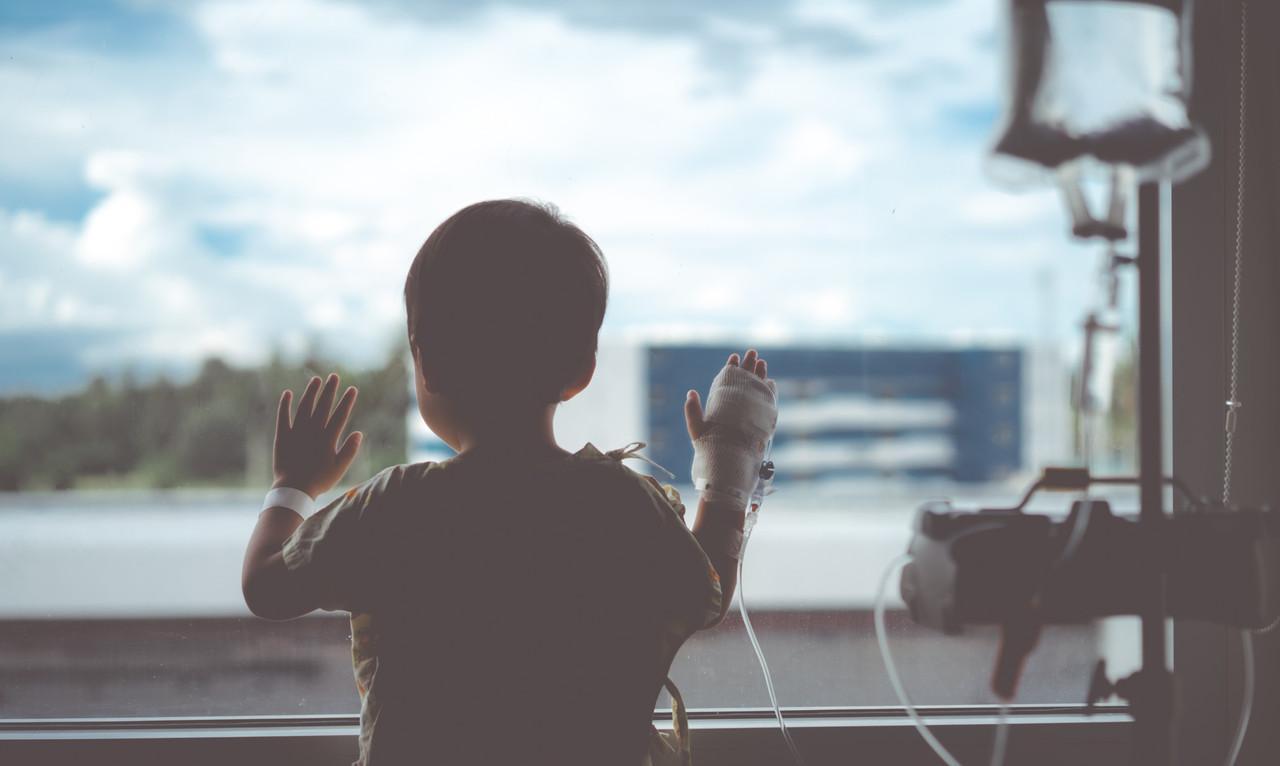Posted on 10 February, asks for an expansion of Luxembourg’s paediatric cancer ward. The aim: to allow children to receive chemotherapy closer to home, in the Kannerklinnik, Luxembourg’s children hospital. Currently, a child that receives a cancer diagnostic is sent to university hospitals--such as the St Luc hospital in Brussels--to undergo chemotherapy. The illness in itself is already a difficult period for parents, children and their family, but having to drive to the hospital for hours, for over a year, is also challenging for the emotional and mental health of a family.
Speaking from own experience
Over 5,000 signatures have already been collected over the past weeks, and though they still have to be validated by the petitions committee, they by far crossed the 4,500 threshold needed for a debate. “Luxembourg is an amazing place to live, there are so many resources, so I think there is so much positive potential to maybe consider this,” Julia Dauphinee, the petitioner at the origin of this drive, tells Delano.
Dauphinee’s daughter Caroline fell ill at 20 months old and was diagnosed with brain cancer sometime after first symptoms appeared. “We were told at the time that it wasn’t possible to receive chemotherapy in Luxembourg. They didn’t have the room to dedicate to chemotherapy,” Dauphinee explains. The Canadian native, who has been living with her family in Luxembourg for seven and a half years now, was referred to a hospital in Paris, a four-hour drive away from Luxembourg.
Relying on remote work and alternate shifts at the hospital, Dauphinee and her husband drove back and forth from their home--ten minutes away from the Kannerklinnik--to the hospital in Paris. While there, they would stay at a parents’ house next to the hospital: “We didn’t have any support in Paris, it was just the two of us.”
For their daughter Caroline, the trips to chemotherapy very particularly gruelling, as medication made her “extraordinarily nauseous”, Dauphinee remembers: “Driving in the car, when you add the effects of the chemo, was really hard on her.”
No place like home
While Dauphinee and her husband were very grateful for the experts they met in Paris, “it was an enormous stress to manage.” In Luxembourg, around 20 children are diagnosed with a form of childhood cancer a year, according to the CHL’s paediatric oncology department’s website. Delano tried contacting CHL several times for more information, but did not receive a response. However, the hospital’s site explains that, for now, the diagnostic and blood work is done in the country, but that children are still referred to hospitals abroad. Plans to change that are not mentioned.
But for parents and children alike, being closer to home would provide relief in an already difficult period that can last from one to two or more years. Parents can in some cases receive a year of paid leave to look after their children, but “we’re just asking for hospital rooms for these treatments,” says Dauphinee, who adds: “Here, at the Kannerklinnik, it’s a different environment because we know the staff much better.” “It’s a much more familiar environment, with the care there, with the links that you make (with the staff).”
Dauphinee and her husband now have a second child, which can also complicate things for families. Martine Wirtz, a psychologist at the Häerz fir Kriibskrank Kanner--an association that supports families in the diagnostic and treatment phases--explains: “The diagnostic in itself is already a big shock, and the big challenge is the lack of time for preparation.” For families with more than one child, taking care of the sick child and their siblings can be a challenge when the hospital is abroad. “Some parents have more or less luck with their work and system, but in terms of organisation, it’s a lot for parents--they have to plan their whole life around that,” Wirtz adds. The unfamiliar environment far from home can also affect the child, she says. ““Every chemotherapy, every blood test that can be done here, is of course always better.”
Dauphinee supports this. Aside from the organisational challenge, “it’s also for the comfort of having your friends and your family there to support you.”
Raising awareness on the topic
Now that her petition has gathered more than the minimum amount of signatures, Dauphinee will be able to present her petition to the Chamber of Deputies for debate. She is nervous, she says, but “so glad that it brought up a conversation on the subject.” For her, the situation also presents an opportunity to teach her daughter Caroline--now five years old and in remission for the past two years--about “helping other people in our lives.”
“I wanted to show her with action that we hopefully could change something.” Caroline--who has been informed about the petition’s evolution since the beginning--will accompany Dauphinee to the debate, she adds. Doctors have already publicly shown their support for the motion too.
And while the Kannerklinnik’s capacities may not change immediately, “hopefully, it will be an evolution towards having more children be able to get their care here.”
